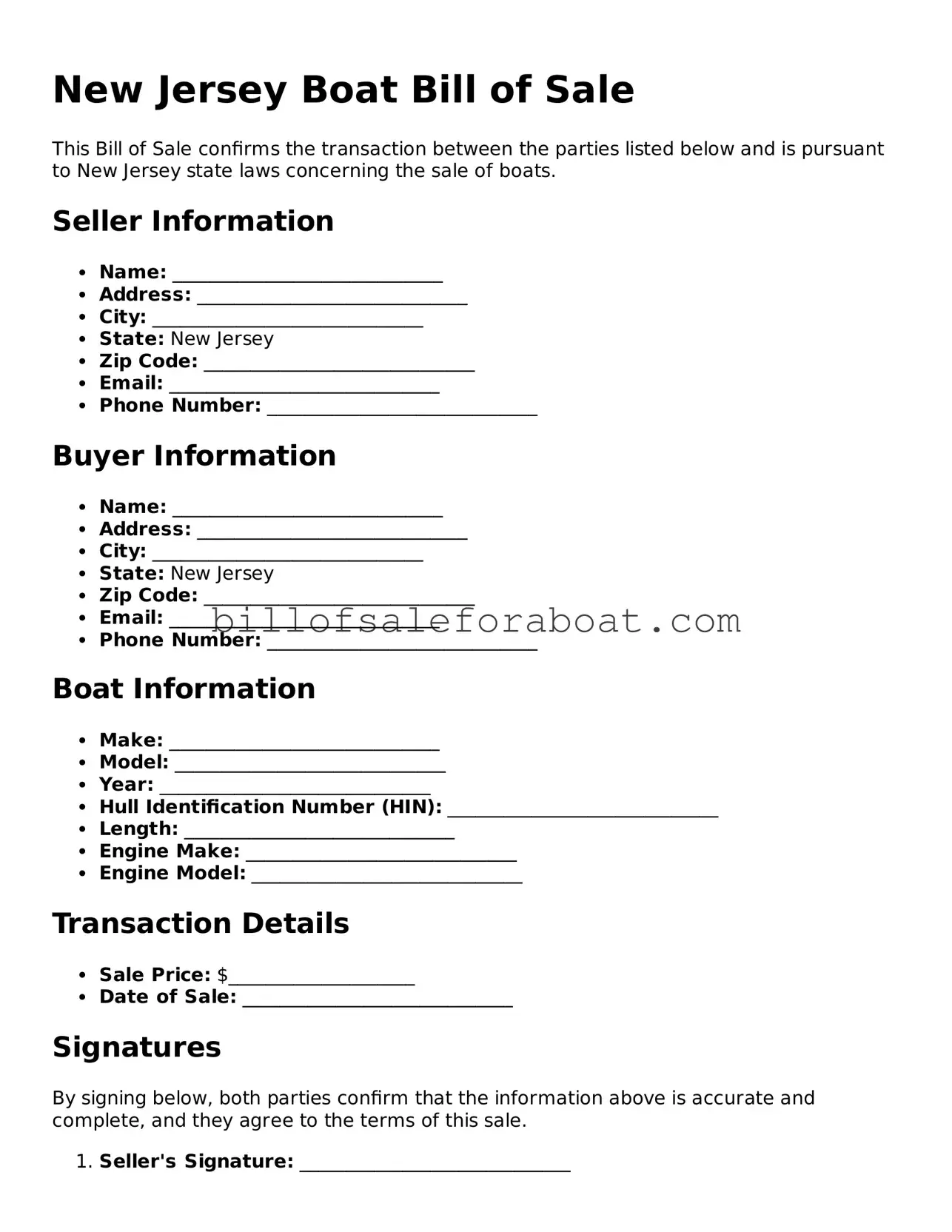Boat Bill of Sale Template for New Jersey State
The New Jersey Boat Bill of Sale form is a crucial document that records the sale and transfer of ownership of a boat. This form protects both the buyer and the seller by providing a clear record of the transaction. Understanding its importance can help ensure a smooth transfer process.
Ready to fill out the form? Click the button below to get started!
Open Boat Bill of Sale Now

Boat Bill of Sale Template for New Jersey State
Open Boat Bill of Sale Now
Fast, simple form completion
Finish Boat Bill of Sale digitally in just minutes.
Open Boat Bill of Sale Now
or
Free PDF
